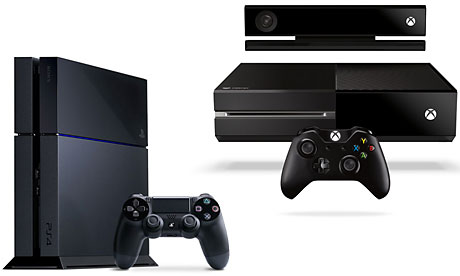It’s been almost eight years since the Xbox 360, PlayStation 3, and Wii launched. It was quite a spectacle; the gaming industry boomed and helped create new ventures in e-Sports and online broadcasting. Gaming became a mainstream phenomenon.
Yet, there seems to be a lack of enthusiasm for the new console launches.
When the PS3 and 360 were announced, my jaw literally dropped when I saw what was in store for me and my friends. It was impossible to contain the excitement and buzz for those consoles. We wanted it. We couldn’t wait. Our fingers were ready to push buttons and wobble joysticks like fiends.
This year’s launch of the Xbox One and PlayStation 4 had no magical sense of excitement like the one that I felt with its predecessors. The graphics look spectacular, but it’s not a major leap from where we left off. The launch lineup for both consoles is mediocre, with no title taking the lead as a must-own.
It feels so… underwhelming.
Yet, that hasn’t stopped both consoles from having record-breaking sales on their launch days. It’s a sign that there has been a shift in the industry: the conversation has moved from the “measuring sticks” debate on who has better processing power or visuals to a battle over the ultimate living room experience.

Graphics are no longer the key selling point. The extended capabilities each console has to offer – instant streaming, a stronger online community hub, social media and app integration – will be the heart of the console generation marathon. The PS4 and Xbox One are no longer just about playing games, but also about creating an extension to the gamer’s life. Games will always be part of the deciding factor, but now mainstream consumers have the option to choose how they want their experience enhanced.
One of my favorite features right now on PlayStation 4 is the remote play feature, allowing me to play AAA next-gen titles away from my actual console. My roommate, on the other hand, is completely sold on the Xbox One’s Kinect voice commands, letting him go hands-free to complete simple tasks to enhance his entertainment experience. It shows that Sony and Microsoft are really trying to provide similar but unique experiences to their user bases.
This (next) gen is also all about socializing. The last generation built an online foundation and paved way for the rise of e-sports. The integration of social media, online streaming, and game recording is going to be an integral part of the gameplay experience. Who knows what else Sony and Microsoft will have in store for us in the future?
The dust hasn’t settled and we probably won’t know who the real winner of this console generation is for a long time. With the limited fanfare, it’s hard to tell. Sure, Sony won the hearts of many with its policy on being DRM-free, but that quickly flatlined as Microsoft caught up with its own changes. I’ve got a good feeling that all of this is just a calm before the storm; I’m expecting the battle to heat up next year during E3 2014 as both companies start landing on their own two feet.


